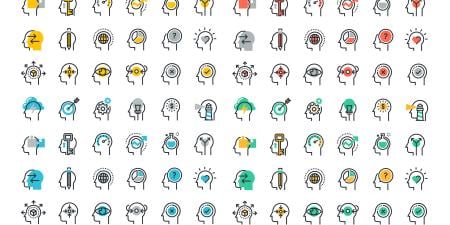Case
The admissions committee of a well-known, private medical school convened to discuss changing admissions criteria as well as the upcoming interview season. Clara, a fourth-year medical student was thrilled to become the student representative on the admissions committee, many of the members of which she admired. She looked forward to learning more about a process that seemed very mysterious and daunting to her just a few short years ago.
During the meeting the committee discussed weighting of undergraduate grades, and volunteer and extracurricular experiences; formed thoughtful, probing interview questions; and much more. As the session was about to conclude, the dean of admissions asked the panel, “Anyone know of any more family members of faculty who are applying this year? I have a brief list already, but want to make sure I’m being thorough here as the season gets closer.”
Clara was stunned that, after all the meticulous work they had done to ensure that the best candidates were chosen for admission, such things were taken into consideration. Gathering up her courage, she asked, “Excuse me, but why would such a thing matter? If they are great candidates, shouldn’t their application and interview experiences speak for themselves?”
The dean of admission said, “I hate to say it, but it’s the way things have always been done. Many wonderful graduates of our medical school have come from physician families and have given back a great deal to the school. Students from physician families tend to be well prepared for the rigors of medical school, and they have a good perspective on what they’re getting into.”
Commentary
Medical school admission committees have the difficult task of selecting students from a large group of talented applicants. The process of selection is complex. Holistic review of applicant files is endorsed by the Association of American Medical Colleges [1]. Holistic review means considering myriad factors in decision making, including academic performance, personal characteristics, exposure to and understanding of the demands of the medical profession, experiences in leadership and team work, and service to others, as well as how a student “fits” or can advance the mission of the medical school. Competition is stiff and the number of positions in each medical school’s entering class is finite, so prospective applicants (and their parents) have asked what they can do to make an application stand out and if there is there some edge that could help an applicant be judged more competitive than others.
One commonly held perception is that being a legacy applicant, a child of an alumnus, provides an advantage, and, by extension, that being the child of a faculty member or a physician may do so as well. Is this the case? Frankly, it is hard to find objective information in response to this question. Few if any published studies exist on this subject in the medical literature, and medical schools would be unlikely to list the value of a family connection in their published selection criteria. However, as two long-time admissions deans, perhaps we can supply some insights about the perceived contributions and challenges that alumni connections may make in selection decisions, and then consider what the ethical implications are of the “advantages” of being a legacy applicant.
Does an alumni connection influence the admissions process? An honest answer would be yes, indirectly. Having parents from a medical background, whether legacy or not, may confer a distinct advantage to students in the following ways:
- Their parents can advise and guide them based on the experience of securing admission to medical school and successfully completing medical training.
- Academic performance may have been strongly stressed in their upbringing.
- They have easier access to shadowing experiences in medical settings through their parents’ contacts.
- They may be from a higher socioeconomic background than other applicants, which may afford opportunities for experiences (such as strong primary and secondary schooling, attendance at respected colleges and universities, opportunities for study abroad, and medical outreach work) and remove the burden of having to support themselves, leaving more time to focus on preparation for medical school.
Challenges for legacy applicants in the admissions process, on the other hand, might include some of the following:
- Members of the admissions committees recognize that medicine may be perceived as the “family business” in physician families and that some applicants are more motivated to pursue medicine by familial pressure than by personal interest. Thus, applicants may be questioned more closely about their personal motivation for a career in medicine, which, unless convincingly answered, can work against them.
- Since legacy applicants are perceived to have significant financial and personal advantages over other candidates, the committee’s expectations for their accomplishments at the time of medical school application may be higher.
- Some physician families (including legacy parents) who are more assertive in advocating for their children can be seen as overly intrusive in an admissions process, with potential fallout for the applicant.
Ethical Analysis
It doesn’t take long to look around and see all kinds of potentially unfair advantages in an admissions process. As an example, wealthy physician parents pay for their son or daughter to take an expensive MCAT prep course, giving them the advantage of higher scores. Most students believe that selection of a class should be based on academic merit and will often compare their credentials with students who achieve entrance with “lower scores.” This can and does lead to cynical feelings that the competitive admission process is unfair. Debate has long taken place at the college level about unearned advantages offered to legacy and affirmative-action students, continually raising questions about the integrity of the process [2].
Having said that most medical schools take note of legacy applicants as well as faculty children in the application process, to what extent is “consideration” given? We don’t know, although admissions committees are not generally pressed to take candidates who are demonstrably unfit for the study and practice of medicine. It is often a matter of awareness of the applicant pool, perhaps some recognition of the need to express a degree of “courtesy” as requested by the dean, alumni office, development office, politicians, and so on. Would most admission committees prefer not to operate with these pressures? Probably yes, but such pressures are a fact of life. We believe that the ability to develop a truly level playing field in the admission process is a perpetual challenge.
Clara asks, “Is it legal to provide ‘courtesies’ to legacy applicants?” According to Kahlenberg, “courts recognize that colleges and universities should be given leeway in admissions in order to promote academic freedom” [3]. He goes on to note that this freedom is not unlimited, even at private institutions. “Ancestry discrimination—providing a leg-up in admissions based not on merit but on whether a student’s parents or grandparents attended a particular university falls outside the protected zone of academic freedom” [3].
In the interest of fairness and equity in admissions decisions, admissions deans must ensure their committees make selection decisions on the basis of their admissions policies and enrollment goals. They must abide by national accreditation standards related to admissions and should be guided by the tenets of the holistic review process: to look at all aspects of an applicant’s file and to select those students, who, on the basis of their accomplishments and personal qualities best fit the mission of the school and are most likely to be successful students and then competent and caring physicians. In the end, the admission process is an art, not a science, and most admissions deans work hard to make the process fair.
References
-
Addams AN, Bletzinger RB, Sondheimer HM, White SE, Johnson LM. Roadmap to Diversity: Integrating Holistic Review Practices into Medical School Admission Processes. Washington, DC; Association of American Medical Colleges: 2010. https://members.aamc.org/eweb/upload/Roadmap%20to%20Diversity%20Integrating%20Holistic%20Review.pdf. Accessed October 31, 2012.
-
Freedman SG. “Legacy” admissions ban highlights flaws in the system. USA Today. January 21, 2004. http://usatoday30.usatoday.com/news/opinion/editorials/2004-01-21-freedman-usat_x.htm. Accessed August 9, 2012.
-
Kahlenberg RD. Ten myths about legacy preferences in college admissions. http://www.chronicle.com/article/10-Myths-About-Lecacy/124561/. Accessed August 9, 2012.



